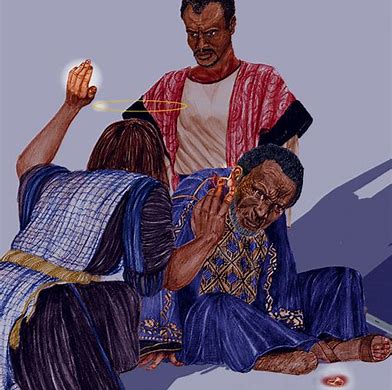In John 18:10 (as well as the other gospels), Peter cuts off the ear of the slave of the high priest (NRSV):
Then Simon Peter, who had a sword, drew it, struck the high priest’s slave, and cut off his right ear. The slave’s name was Malchus.
Josephus, in Antiquities 14.13.10 (366), has a similar story about Antigonus cutting off Hyrcanus's ears to disqualify him from high priesthood.
but being afraid that Hyrcanus, who was under the guard of the Parthians, might have his kingdom restored to him by the multitude, he cut off his ears, and thereby took care that the high priesthood should never come to him any more, because he was maimed, while the law required that this dignity should belong to none but such as had all their members entire.
This is in accordance with the law (Leviticus 21:17-20):
Speak to Aaron and say: No one of your offspring throughout their generations who has a blemish may approach to offer the food of his God. For no one who has a blemish shall draw near, one who is blind or lame, or one who has a mutilated face or a limb too long, or one who has a broken foot or a broken hand, or a hunchback, or a dwarf, or a man with a blemish in his eyes or an itching disease or scabs or crushed testicles
Did Peter, like Antigonus, cut off Malchus's ear to disqualify him from serving as a priest?
The two events clearly share something very specific in common (the cutting of an ear); but unlike the case of Hyrcanus, there seems to be no obvious motivation: why would Peter care if Malchus is able to serve or not? It also isn't clear from the text if Malchus is a priest himself.
